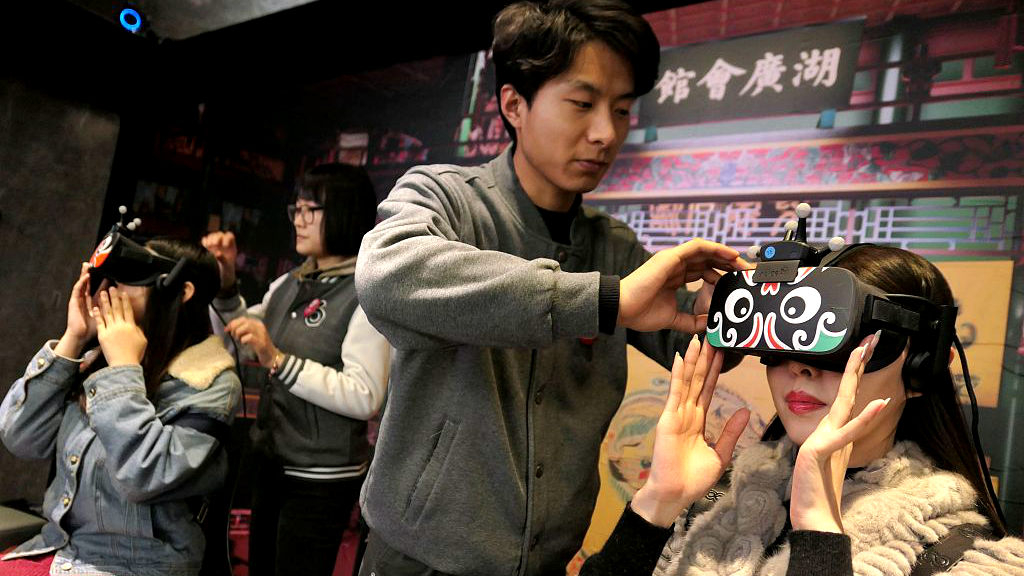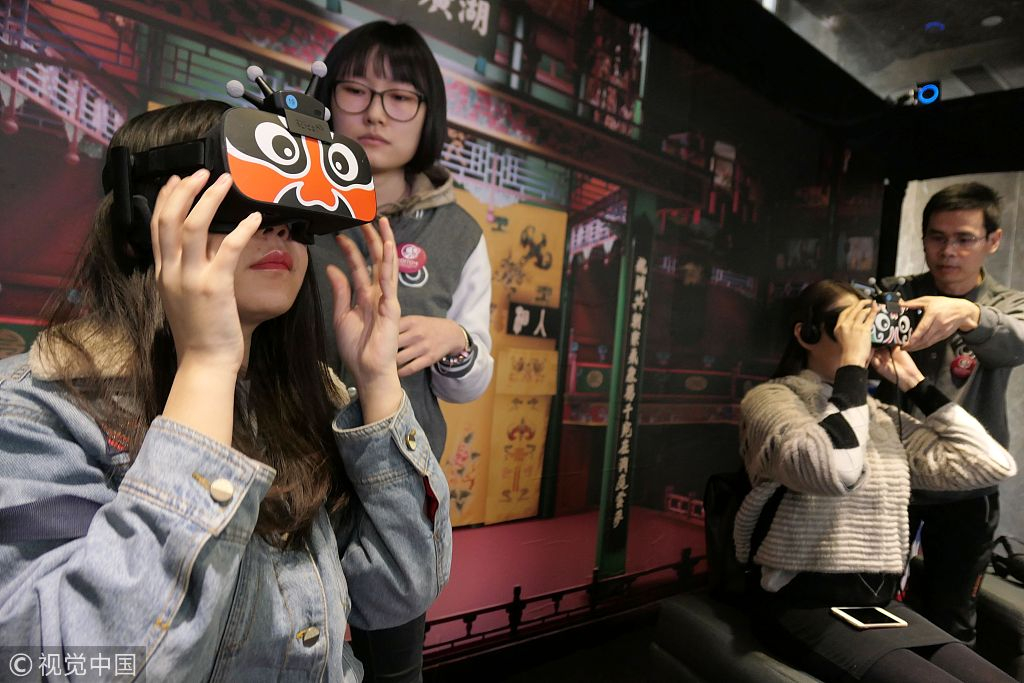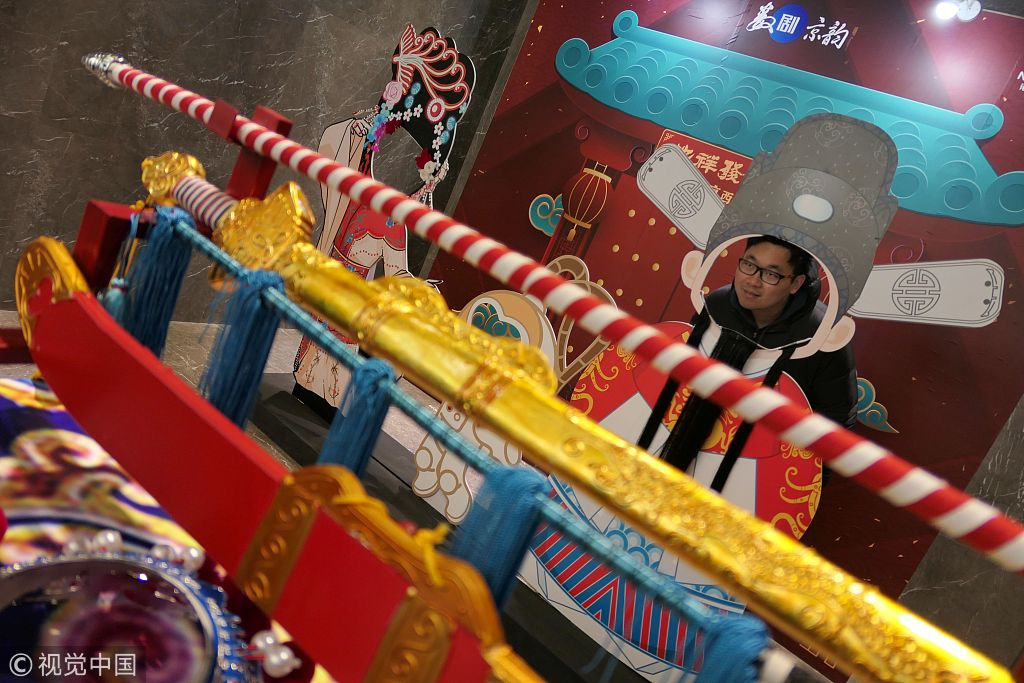
Culture China
20:59, 29-Jan-2019
Peking Opera reimagined through VR technology
Updated
22:54, 29-Jan-2019
By Qi Jie, Yang Ran
03:06

Peking Opera is regarded as quintessentially Chinese. But, just as with other operatic traditions like Kunqu or Cantonese opera, it's getting harder to attract the interest of young people. So the Beijing municipal government has come up with a way, by teaming up with virtual reality company Noitom.
For Beijing residents, Peking Opera performances used to be a must for the Chinese Lunar New Year in the old times. Today, people don't have to go to the theater to appreciate the combination of virtual and reality, a special technique of Peking Opera expression. Instead, they enjoy it through virtual reality. This young high-tech enthusiast said most young people can't afford to go to the theater to see a Peking Opera performance. That opens a window for capturing their attention virtually.
"I came here for the high-tech experience. But it did surprise me to see Peking Opera this way. I'm really impressed by this traditional art form. I think I'll do some homework about the history of Peking Opera and learn more about the particular performance. I believe, step by step, VR is able to shorten the distance between young people and Peking Opera," visitor Liang Youcun said.

Visitors enjoy a Peking Opera show through VR techniques at the event, January 28, 2019. /VCG Photo
Visitors enjoy a Peking Opera show through VR techniques at the event, January 28, 2019. /VCG Photo
Hu Xiaomao and Li Jichun are famous nationwide as Peking Opera actors. The old-fashioned artists spoke about their first experience working with high-tech professionals from home and abroad.
"For the face alone, there are 42 scanning points to capture facial expressions. Then, according to these expressions, the computer selects the swatches automatically and synthesizes them into digital images," Peking Opera artist Hu Xiaomao said.
"It's such a new experience for both of us. Usually, we perform stylized forms of Peking Opera on stage. This time we did it in the studio, and then those stylized forms are presented through the technology. It's pretty cool. I hope it won't let the audience down," Peking Opera artist Li Jichun said.

A visitor poses for photographs behind a Peking-Opera themed board at the event, January 28, 2019. /VCG Photo
A visitor poses for photographs behind a Peking-Opera themed board at the event, January 28, 2019. /VCG Photo
Noitom, the company behind this project, has been working with Peking Opera artists since 2014. It eventually digitized all the elements, including theater, stage, costume, stage property, and martial arts. All the efforts are made to spark young people's interest.
From the era of "Press the button" to "Touch the screen," today's high tech really makes our lives more instant. And by using the latest technology to showcase one of the oldest forms of operatic arts, we can't help but wonder: Will it be the real deal?
Technology and cultural traditions aren't always in conflict, but can benefit from each other. As the biggest Chinese opera form, Peking Opera is extolled as a true "Oriental Opera," with a history of 160 years. To preserve it in the long run, technology will definitely be part of the solution.
(Cover: Visitors enjoy a Peking Opera show through VR techniques at the event, January 28, 2019. /VCG Photo)

SITEMAP
Copyright © 2018 CGTN. Beijing ICP prepared NO.16065310-3
Copyright © 2018 CGTN. Beijing ICP prepared NO.16065310-3